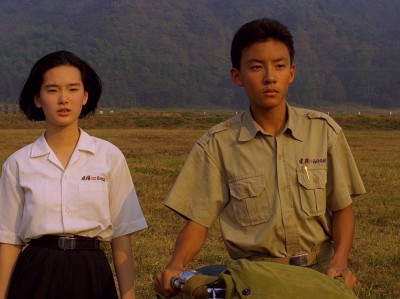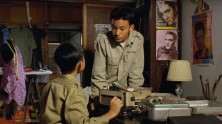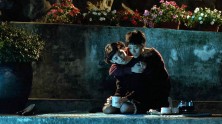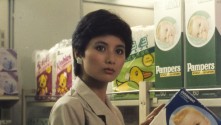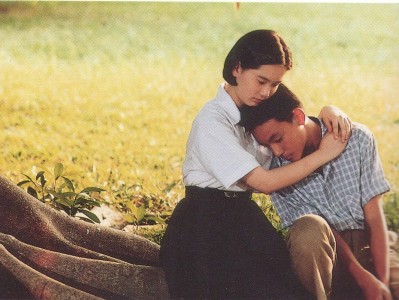
Mahjong
(Ma jiang)
With Tang Tsung Sheng, Chang Chen, Lawrence Ko.
Taiwan, 1996, DCP, color, 121 min.
Mandarin, Min Nan and English with English subtitles.
DCP source: Janus Films
Mahjong is a game for four players, and the one who first collects winning sets of tiles wins. But the real game lies not in these rectangular pieces per se, but in deliberating what one already has and could afford to discard or how to acquire from others what one desires but does not yet possess. The funniest and angriest of Yang’s films, Mahjong questions the sustainability of the dominance of a calculating profit-mindedness and transactional mentality, incubated in a capitalist madness blown to the point of barbarity. Red Fish, the son of a missing millionaire, leads a group of four young men as they swim in the ocean of ambivalent values among European expats, entrepreneurs, liars and criminals. A series of surprising events expose a social world where tenderness only makes one vulnerable to be exploited or deceived, and people—avoiding responsibilities—lack courage to think or make decisions for themselves. Following A Confucian Confusion, this dark comedy continues to experiment with theatrical forms. Yang’s use of lighting in a scene of an astonishing and dramatically powerful murder recalls Béla Tarr’s intense chamber drama Autumn Almanac (1984). The repeated appearance of T.G.I. Friday’s and the Hard Rock Café, along with other globalist trinkets, casts an alluring, mysterious and uncanny shadow over Taipei’s colorful nightlife.
